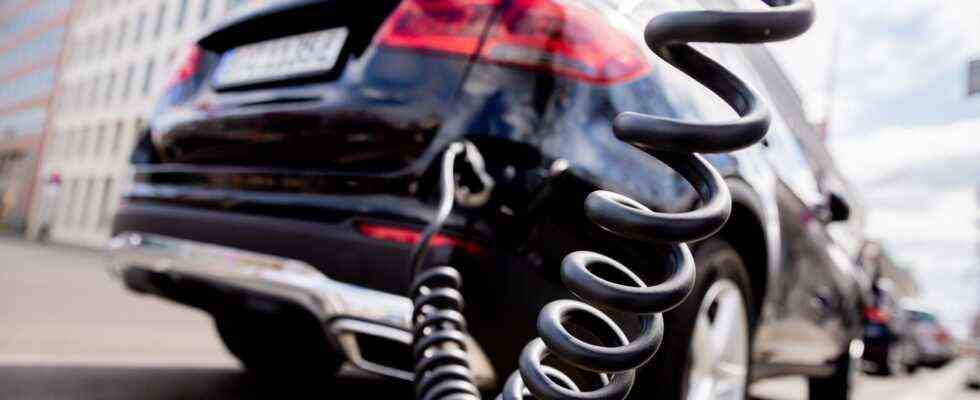Status: 11/26/2021 8:59 a.m.
Environmentalists criticize the fact that the traffic light coalition wants to continue to subsidize plug-in hybrids as a “wrong path in terms of climate policy”. How often the cars are actually driven in purely electric mode remains controversial.
The Federation for the Environment and Nature Conservation Germany (BUND) has criticized the traffic light plans for further state subsidies for plug-in hybrid vehicles. “The fact that the purchase of plug-in hybrids is to be subsidized without any specifications until the end of next year is a mistake in terms of climate policy,” said Jens Hilgenberg, Head of Transport Policy at the German Press Agency.
Intra-group misjudgments in component procurement should not provide any legitimation for this, said Hilgenberg with a view to material shortages in the automotive industry and long waiting times for customers. “All kinds of purchase subsidies and tax benefits for plug-in hybrids must be reduced to zero.”
Fuel saver or climate problem?
Plug-in hybrids combine an electric drive with a combustion engine. The goal: In the city, the vehicles should be driven electrically and emission-free, after all, the combustion engine can be used over long distances. It is controversial how often these vehicles are actually driven in purely electric mode. Plug-in hybrids are often heavy SUVs.
The combination of the high weight of the batteries for the electric drive and the climate-damaging combustion engine is also controversial. Anyone who does not charge their plug-in hybrid vehicle and instead only transports the electric motor as ballast will ultimately not produce fewer, but more emissions.
In mid-2020, against the backdrop of the corona pandemic, it was decided to double the purchase premium (“environmental bonus”) for electric vehicles through an innovation bonus until the end of 2021. The coalition agreement between the SPD, the Greens and the FDP now states that the state innovation bonus should continue unchanged according to the previous regulation until the end of 2022, in particular because of existing delivery difficulties of the manufacturers of plug-in hybrids that have been ordered.
More popular than pure electric cars
Subsequently, the subsidization for electric vehicles and plug-in hybrids is to be fundamentally reformed in such a way that from 2023 it will only be issued for vehicles that have “demonstrably a positive climate protection effect”. With the envisaged limitation, however, it is to be feared that electrically powered vehicles will be assessed across the board, says environmentalist Hilgenberg: “Here, at least clear specifications are needed on size, electricity and resource consumption Investing traffic. “
According to the traffic light parties, the innovation bonus will no longer be required beyond the end of 2025. This leaves open whether there will still be the “normal” state purchase premium afterwards. The doubled state share for the purchase of electric cars and plug-in hybrids had led to a sharp rise in new registrations.
“In the first half of 2021 alone, plug-in hybrids made up over 50 percent of newly registered vehicles with electric drives,” says the German Association of the Automotive Industry (VDA). According to a study by the Transport & Environment organization, car manufacturers such as BMW or Mercedes would not even come close to achieving the European Union’s targets for reducing emissions without plug-in hybrids.

